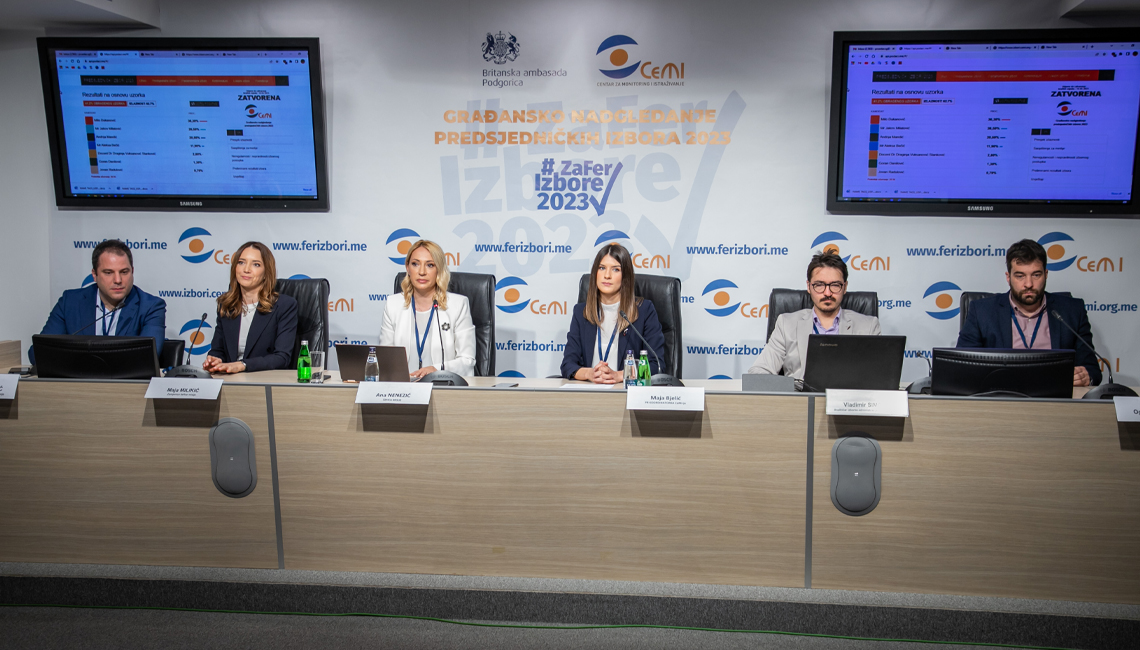According to the data from the Center for Monitoring and Research (CeMI), on the basis of 41.2 percent of the processed sample for the presidential elections in Montenegro, the candidate Milo Đukanović won 36.3 percent of the votes, Jakov Milatović, M.Sc., 26.50 percent, Andrija Mandić, 20.5 percent, Aleksa Bečić, M.Sc., 11.90 percent, assistant professor Draginja Vuksanović Stanković 2.8 percent, Goran Danilović 1.3 percent and Jovan Radulović 0.70 percent.
Ana Nenezić, head of the Citizens' Monitoring Mission 2023, said that this is the sixth CeMI conference.
"More than 70 media representatives from 22 media houses were accredited to monitor CeMI's conferences during the election day, six of which were regional, while three media houses with national coverage broadcasted the press conferences live - Radio Television of Montenegro, Vijesti and TV E ", stated Nenezić.
She emphasized that these are not the final results or estimates, and that CeMI has enabled all citizens of Montenegro to have a direct insight into the sample and estimates and have data as they arrive to CeMI from observers.
In clarifying the methodology, Nenezić said that CeMI does a parallel vote count, which is a method of data processing on the number of votes that arrive from those polling stations that make up a representative sample, based on which the final results estimate is being made.
"Statistical error indicates the range in which the final result can move, in relation to the result obtained from the sample data. Sample stability is not a professional term, it indicates the "stabilization" of the statistical error that depends on the number of received data in relation to the sample size," Nenezic explained.
"We have been announcing all day that the turnout will be in the same range as it was during the presidential elections in 2018, that percentage is a little lower compared to those elections," Nenezić said.
She reminded that the average deviation of CeMI's estimates of election results compared to those published by the State Election Commission during previous years was significantly lower than the statistically acceptable deviation of +/-1%
